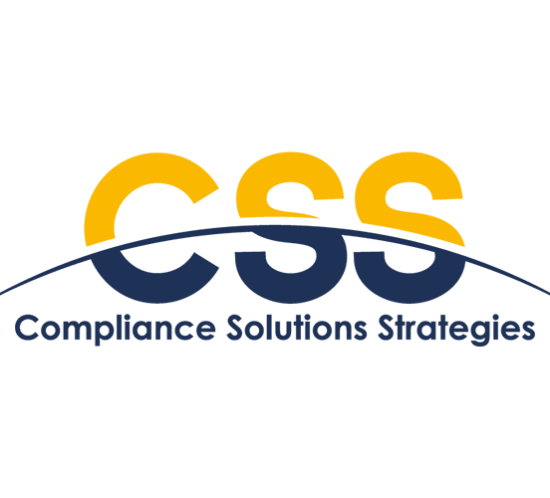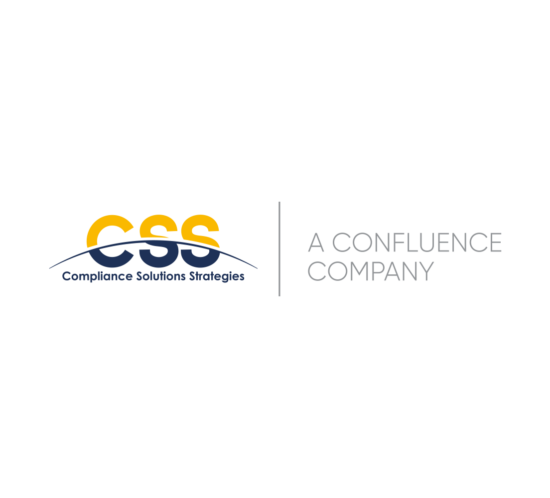Global ESG reporting standards are settling, with final days of comment periods at hand
A consultation by the ISSB (the International Sustainability Standards Board, launched in November at the UN’s COP26), on corporate sustainability reporting, closes this Friday July 29th. Its two “Exposure Drafts” (EDs) address companies’ (1) disclosure of sustainability-related financial information and (2) climate-related disclosures. Among the comments submitted are those from EU financial regulator ESMA, which recommended that the ISSB consult closely with the separate GRI standards (established by the Global Sustainability Standards Board) as well as with EFRAG (the European Financial Reporting Advisory Group).
For its part, EFRAG has launched a public consultation for its own EDs, which ends on Monday August 8th. These EDs relate to proposed European Sustainability Reporting Standards (ESRS), mandated under the EU’s proposed Corporate Sustainability Reporting Directive (CSRD). (Last month, the European Parliament and Council reached a provisional political agreement on the CSRD, under which corporate sustainability reporting requirements will be phased-in starting on 1 January 2024.) Recently, ESMA’s Securities Markets Stakeholder Group provided advice to ESMA on EFRAG’s consultation, which may offer insight on how these disclosure standards could change before becoming final.
Key Considerations When Replacing UCITS KIIDs With PRIIPs KIDs
With the ever-changing regulations and the strain they place on internal resources, it is increasingly important that firms have a streamlined and holistic approach to their data, calculations, and processes to meet the evolving regulatory requirements.
In a few short months, asset management firms, insurance companies, and other financial institutions will need to comply with the European Union’s (EU) new Packaged Retail and Insurance-based Investment Products (PRIIPs) Key Investor Document (KID) reporting requirements.
There are several key considerations from pre-production to filing to ensure that you meet the PRIIPs KID requirements and deadline, and here are 10 things you should be checking:


I am raw html block.
Click edit button to change this html
Subscribe today and receive our latest industry updates and articles.
You may unsubscribe at anytime with our simple “unsubscribe” link at the bottom of each communication. Please see our privacy notices below for further information, including a list of affiliates covered by this consent.
Confluence Ranks First in “Performance Attribution” at 2022 Chartis RiskTech BuySide50 Awards
Pittsburgh, PA, June 29, 2022 – Confluence Technologies, Inc. (“Confluence”), a global technology solutions provider helping the investment management industry solve complex investment data challenges, announced today it has been ranked first in “Performance Attribution” at the 2022 Chartis RiskTech BuySide50 Awards.
In its inaugural year, Chartis’ RiskTech BuySide50 awards recognized Confluence Analytics for its cloud-based performance and risk solution, in addition to ranking it a top 20 firm for its breadth and depth of services, excellence in performance attribution and risk analysis, and overall platform breadth.
Confluence offers vital analyses of portfolio performance, attribution, risk and compliance to help over 400 clients across 40 countries to manage their portfolios, analyze and report on their investments, comply with regulations, and gain operational and cost efficiencies. Its extensive cloud-based platform provides highly scalable performance and risk analytics to increase productivity and reduce turnaround time, enabling clients to focus on making smarter investment decisions.
Chartis RiskTech BuySide50 awards is an independent global study of the world’s major buy-side players across the investment management lifecycle. The results reflect the opinions of veteran industry analysts, combined with research into market trends, participants, expenditure patterns and best practices.
Confluence’s win of Performance Attribution Product of the Year recognizes the functional capabilities of the platform and Confluence’s role as a leading provider to the asset management and investment management industries.
Commenting on the award win, Damian Handzy, Managing Director – Performance, Risk & Analytics, said:
“This recognition is the result of years of hard work by the Confluence team and our partnerships with our clients. Buy-side asset management firms want solutions that can account for performance and risk attribution in the most accurate and streamlined way possible. Confluence’s ability to help clients make better investment decisions while reducing costs and complying with regulations is a testament to our commitment to meet the needs of our clients globally– we are delighted this has been recognized.”
“Asset managers are under extreme pressure to meet investment charters/ goals. Performance attribution is how asset managers quantitatively display to their investors that portfolio choices are matched with determined risk-return profiles/ decisions. Confluence is the forefront leader, providing asset managers cutting edge performance attribution technology and analytics.”
– James Wolstenholme, Research Director, Chartis
About Confluence
Confluence is a leading global technology solutions provider committed to helping the investment management industry solve complex data challenges across the front, middle and back office.
From data-driven portfolio analytics to compliance and regulatory solutions, including investment insights and research, Confluence invests in the latest technology to meet the evolving needs of asset managers, asset owners and asset services to provide best-of-breed solutions that deliver maximum scalability, speed and flexibility, while reducing risk and increasing efficiency.
Headquartered in Pittsburgh, PA, with 900+ employees in 15 offices spanning across the United Kingdom, Europe, North America, South Africa, and Australia, Confluence services over 1000 clients in more than 40 countries. For more information, visit www.confluence.com
Media Contact (US)
Michael Kingsley
Forefront Communications Group, Inc.
+ 1 212-320-8984
mkingsley@forefrontcomms.com
For ESG ratings providers in the EU, those who use that information, and companies rated:
To get a sense of possible regulations on the horizon, see ESMA’s recent statement on the outcome of its Call for Evidence issued in February. Among its findings from the industry’s input, ESMA highlights insufficient data, particularly about SMEs and non-listed companies, as fundamentally impacting the usability and relevance of ESG ratings. Also cited:
· low transparency of rating methodologies and data sources
· lack of comparable and standardized data
· a misalignment on the definition of “ESG”
· delays in updating or correcting underlying ESG data
· ratings methodologies biased toward larger, listed and U.S.-based companies
· conflict of interest risks
ESMA notes that the input it received may prove “useful for a possible assessment around the need for introducing regulatory safeguards for ESG rating products”
Investment managers and advisors subject to U.S. rules: Be aware that the SEC has finalized amendments to the following filings, providing for electronic submissions instead of paper filings:
· Confidential treatment requests for Form 13F (via EDGAR)
· Applications for orders under the Investment Advisers Act of 1940 (via EDGAR)
· Form ADV-NR (via IARD)
In addition, the changes require additional information and include technical amendments for reporting on Form 13F.
The new rules become effective 60 days after publication in the Federal Register, but with a six-month transition period for filers to implement the modified requirements. The amendments to Form 13F have a separate effective date of 3 January 2023. For further details, see the SEC’s Communiqué de presse and the rule amendments.”
Climate-related Regulation of U.S. Derivatives Markets: the CFTC Asks You to Weigh In
The CFTC recently issued a Request for Information, asking the public how the CFTC should consider climate risk in its regulation of derivatives. Thus the agency appears ready to join the SEC in making sustainable finance an important part of its rulemaking plans.
New CFTC rules for climate risk would affect financial market participants worldwide such as investment managers, many of whom conduct their U.S. trading strategies for commodity derivatives under certain CFTC-mandated restrictions such as position limits. Considering the CFTC’s historically significant role in the regulation of U.S. derivatives markets, its RFI should be viewed by the investment community as a signal of what climate-related rules the CFTC may propose, and as an important opportunity to help shape those rules by submitting responsive comments. Those comments must arrive at the CFTC no later than 8 August 2022.
With its RFI feedback, the CFTC seeks to eventually produce “new or amended guidance, interpretations, policy statements, or regulations, or other potential Commission action” on climate-related risks in derivative markets. Such oversight potentially would apply to any entities that the CFTC currently regulates, including:
- Designated Contract Markets (DCMs)
- Swap Execution Facilities (SEFs)
- Swap Data Repositories (SDRs)
- Derivatives Clearing Organizations (DCOs)
- Futures Commission Merchants (FCMs)
- Introducing Brokers (IBs)
- Swap Dealers (SDs)
- Major Swap Participants (MSPs)
- Commodity Pool Operators (CPOs)
- Commodity Trading Advisors (CTAs)
The RFI, published on 2 June 2022, consists of 34 sets of questions posed to the industry. Some are informational, seeking to understand certain marketplace practices. Many more solicit policy opinions on discrete matters, for example, “Are there ways in which updated disclosure requirements could aid market participants in better assessing climate-related risks?” These are the areas the CFTC touches on:
- types of data that would help the CFTC evaluate climate-related risks of derivatives market participants
- climate scenarios, stress testing and other data tools that would help measure risks to derivatives market participants
- adaptation of risk management frameworks to climate-related financial risks
- updating of disclosure requirements to better reflect climate-related financial risk
- regulation of climate-related derivative products
- regulation of voluntary carbon markets
- climate-related financial risks of digital assets
- impact of climate-related financial risk to vulnerable communities
- public-private partnerships to address climate-related financial risk in derivatives markets
- improvement of CFTC’s capacity to address climate-related financial risks, and CFTC coordination efforts with international regulators and groups
While all five CFTC Commissioners approved the RFI, two of them – Summer Mersinger and Caroline Pham – cautioned the CFTC against overstepping its jurisdictional boundaries, were it to pursue some of the regulatory efforts contemplated in its RFI. It’s likely that any future opposition to such CFTC rules would, at least in part, be based on this issue of federal agency jurisdiction (similar to what we have seen in opposition to the SEC’s climate disclosure rules for issuers).
Anyone wishing to respond to the RFI should do so by one (and no more than one) of the following methods:
- via the CFTC Comments Portal, at https://comments.cftc.gov (select the “Submit Comments” link for the release, and follow the instructions on the Public Comment Form)
- this is the method that the CFTC encourages
- by postal mail, to:
Christopher Kirkpatrick, Secretary of the Commission
Commodity Futures Trading Commission
Three Lafayette Centre
1155 21st Street NW
Washington, DC 20581
- by hand delivery / courier: same as for postal mail (above)
Comments submitted will be public, and posted as received at https://comments.cftc.gov/PublicComments/ReleasesWithComments.aspx.
I am raw html block.
Click edit button to change this html
Subscribe today and receive our latest industry updates and articles.
You may unsubscribe at anytime with our simple “unsubscribe” link at the bottom of each communication. Please see our privacy notices below for further information, including a list of affiliates covered by this consent.





